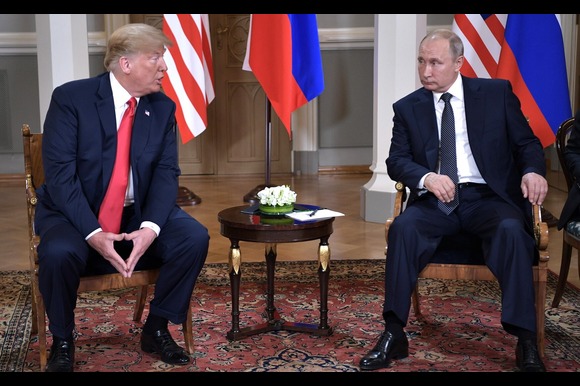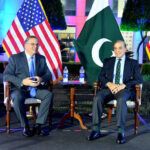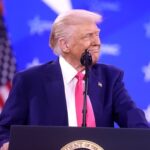In a sharp escalation of rhetoric between Washington and Moscow, US President Donald Trump announced that he has ordered two nuclear submarines to be “positioned in the appropriate regions” in response to what he described as “highly provocative” comments made by former Russian President Dmitry Medvedev.
Trump stated the move was precautionary, aimed at preventing any potential escalation stemming from Medvedev’s remarks. “Just in case these foolish and inflammatory statements are more than just that. Words are very important, and can often lead to unintended consequences. I hope this will not be one of those instances,” Trump wrote on Truth Social.
The president did not specify where the submarines are being deployed, adhering to longstanding U.S. military protocol on such sensitive movements. It also remains unclear whether the submarines are nuclear-powered, nuclear-armed, or both.
The move follows a fresh wave of tensions after Medvedev—currently deputy chairman of the Security Council of the Russian Federation—issued stark warnings in response to Trump’s demands that Moscow agree to a ceasefire in Ukraine or face severe U.S. sanctions. Both Russia and the United States maintain vast nuclear arsenals, including fleets of strategic nuclear submarines, which are central to their deterrence capabilities.
In a post on Friday, Trump reiterated his position: “Based on the highly provocative statements of the former president of Russia, Dmitry Medvedev, who is now the deputy chairman of the Security Council of the Russian Federation, I have ordered two nuclear submarines to be positioned in the appropriate regions.”
Later speaking to reporters, Trump said: “A threat was made, and we didn’t think it was appropriate. So I have to be very careful. I do that on the basis of safety for our people. A threat was made by a former president of Russia. And we’re going to protect our people.”
The Kremlin has not yet issued any official response. However, the Moscow stock market reacted swiftly, plunging sharply in the wake of Trump’s announcement, a sign of investor concern over the growing tensions.
The confrontation comes amid an increasingly personal and public war of words between Trump and Medvedev. On Monday, Trump had given Russian President Vladimir Putin a deadline to end the war in Ukraine by August 8. With no sign of compliance from the Kremlin, Trump reinforced his stance with a stronger warning and new threats.
This new deadline follows a series of ultimatums issued by Trump in recent weeks. Earlier in July, he threatened harsh tariffs on Russian oil and other key exports unless Moscow ended the war within 50 days. Trump also set a separate 10- to 12-day deadline earlier this week, raising the pressure on the Kremlin.
Medvedev, who served as Russia’s president from 2008 to 2012, has been a vocal proponent of the ongoing war in Ukraine and an increasingly aggressive critic of the United States and its allies. Responding to Trump’s demands, Medvedev accused the U.S. leader of “playing the ultimatum game with Russia.”
“Each new ultimatum is a threat and a step towards war,” Medvedev posted on X (formerly Twitter) earlier this week. He had previously dismissed Trump’s threats as “theatrical,” asserting that “Russia didn’t care.”
On Thursday, Medvedev published a message on Telegram warning of a “dead hand” scenario—a phrase interpreted by some military experts as a possible reference to Russia’s Cold War-era automatic nuclear retaliation system, also known as the “Perimeter” system.
Trump has not let Medvedev’s provocations go unanswered. On Thursday, he lashed out at the Russian official, calling him “the failed former president of Russia, who thinks he’s still president,” and added a direct warning: “Watch your words. You’re entering very dangerous territory!”
The ongoing war of words between Trump and Medvedev reflects deeper strategic tensions over the future of Ukraine and the fragile nuclear balance between the world’s two leading nuclear powers. With each side escalating its rhetoric and positioning, the international community is bracing for what many fear could be a broader geopolitical crisis.






